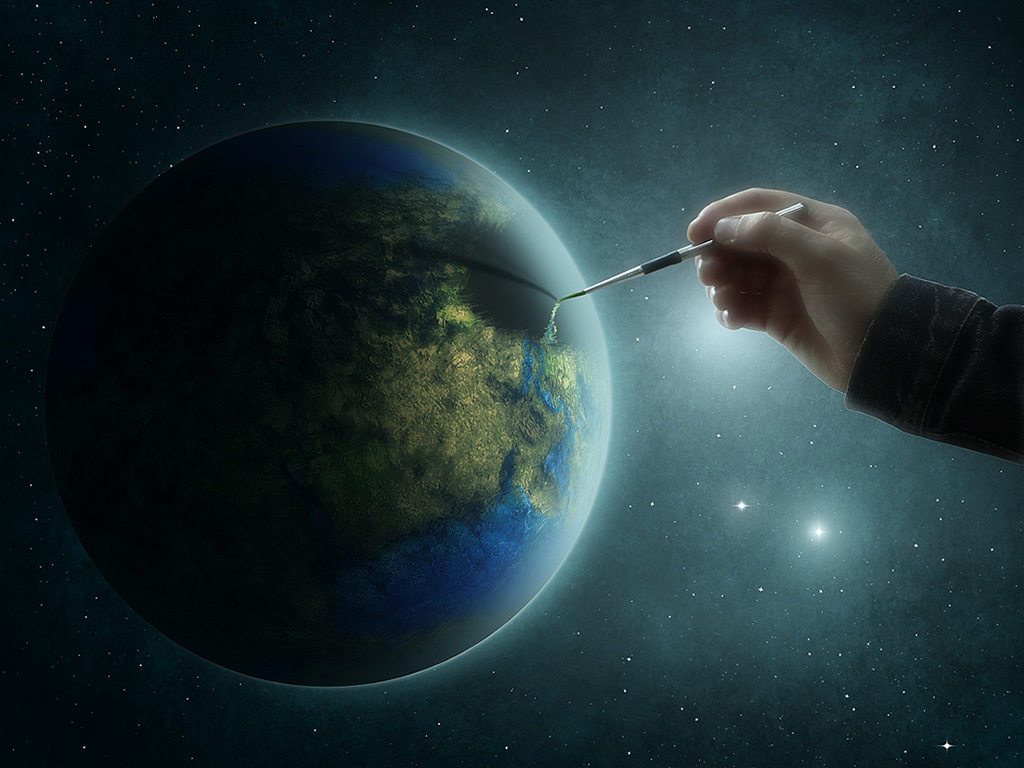 I sometimes need to teach through the concept of middle knowledge, so I thought I should have a page with just this information. For a more in-depth conversation, check out the articles at “Calvinism predestination middle-knowledge and does God know the future…whew”
I sometimes need to teach through the concept of middle knowledge, so I thought I should have a page with just this information. For a more in-depth conversation, check out the articles at “Calvinism predestination middle-knowledge and does God know the future…whew”
Middle Knowledge
God decides to create. At this point, He has limitless options because only God can limit His own options. He is a painter with a literally blank canvas… because God can create from nothing. He is limited by only His own decisions.
God decides to limit His options. A possible example: He decides He wants some part of His creation to have the option of accepting or rejecting His love for them.
God no longer is choosing from limitless options (by His own choice and design). He has begun to narrow toward what He wants. No one is forcing this on Him. This is like you choosing a candy bar at the gas station. No one limits your choices but you, and this only expresses your freedom, not diminishes it.
God looks through all the possible futures of all of the possible worlds He can choose from. He is not just choosing a starting place and letting it go; He knows all of the sparrows in all of the worlds still within His guidelines. This is an extension of what is called “Middle Knowledge.” This concept explains that God not only knows what will happen, but He even knows what will NOT happen. He knows futures that don’t exist.
Check this out:
1 Sam 23:10-13
Then David said, “O LORD God of Israel, Your servant has heard for certain that Saul is seeking to come to Keilah to destroy the city on my account. “Will the men of Keilah surrender me into his hand? Will Saul come down just as Your servant has heard? O LORD God of Israel, I pray, tell Your servant.” And the LORD said, “He will come down.” Then David said, “Will the men of Keilah surrender me and my men into the hand of Saul?” And the LORD said, “They will surrender you.” Then David and his men, about six hundred, arose and departed from Keilah, and they went wherever they could go. When it was told Saul that David had escaped from Keilah, he gave up the pursuit. (NASU)
Notice that God tells David what would happen if he stayed, but he didn’t stay! God described a future that didn’t happen.
So, God looks down through all the possible futures of all of the possible worlds and creations He could create within whatever bounds He had chosen for Himself.
I think it is safe that in some of these potential creations I accepted His free gift and in some of them I did not.
In some of them I freely chose to accept His love for me and in others I freely rejected His goodness to me (heck, maybe there was only a few in which I freely accepted His love, or maybe even just one – yikes!). All of these possibilities existed in His mind. In the end (or rather “in the beginning”) He chose one and created it.
It seems self-evident to me that God knew all possible creations He could have created. How could He NOT have known? It also seems self-evident that He would have known them before He did the actual creating.
In the act of creating, He knowingly, foreknowingly, and sovereignly chose His creation to create.
Also, in doing so, He knowingly, and foreknowingly and Sovereignly chose me.
I freely chose Him, but only in the world He chose to create.
I chose freely by His design; He chose sovereignly in His creation.
He, in His grace, saved me. This was His work. Though the Spirit, in faith, I freely chose to respond to His grace rather than reject it.
He chose, foreknew and predestined. I heard and freely responded. And neither cancels the other out.
Now, this may not be accurate as to what happened when God created, but it shows that it is possible and even reasonable for God to choose me and for me to choose God without the two coming in contradiction to the other.
I want to express carefully that I do not believe it is because of any positive aspect of my character that I would have chosen God… only a positive aspect of my nature – namely, having been created in the image of God.
In my hopelessness and helplessness, He has given grace freely. If I can do anything, it is that I accept His free and perfect gift. I may not even do that, but I am certain that is the most that I do… perhaps that is part of being created in His image – which all humans are.
Salvation is a gift offered from the grace, kindness, love, goodness and identity of God. Me asking has nothing to do with Him offering and giving. The most that I believe a human can do is accept. It is probably not unlike a man hanging from a cliff accepting a hand even as he begins to fall, and possibly not even that.
Again, I am not an expert on these matters, though I am fascinated by them – and love when Christian thinkers break out of the mold of common but rut-based thinking. However, William Lane Craig IS an expert on them, and I will offer one link to some of his work. http://www.leaderu.com/offices/billcraig/menus/omniscience.html
Ok, and I also want to comment on another theological view that is often linked to Middle Knowledge…
At different times in the past, an ancient heresy has re-risen. (Typically new theologies are just recycled old heresies). Recently, it has been called “Open Theism” or something similar.
“Open” is a reference to the theory that God does not know the actual future – but ONLY the possible futures. Make sense?
In other words, the idea is that God knows all possible futures, but He doesn’t know which one will actually happen.
This was based on many different passages , especially those that that reference God “regretting” something (Gen 6:6 and 1 Sam 15:35) and others, like the one I listed above about David. How can someone who knows the future regret something? (I will explain how in a second, I think).
The idea is that God knows all that is knowable (omniscient) but that the future isn’t knowable. It was largely brought back into vogue to make God less “responsible” for when bad things happen. (It actually fails in this regard, since it doesn’t limit God’s omnipotence or omnipresence and since God would still be there and would still be powerful enough to act)…
However, passages like Isaiah 46:9-10 indicates that God knows the future and even reveals it sometimes. (the whole idea of prophecy challenges the thought that God doesn’t know the future)… Psalm 139:4 indicates that God knows words before I form them. Obviously, any passage that talks about God’s predestination and foreknowledge defies the idea that God doesn’t know the future.
Pingback: Calvinism, predestination, middle knowledge and does God know the future – whew! – Part 1 | Chris Legg, LPC
Is this modern Arminianism? In this view, man is still at the center of his salvation. After all, God chose the option were I chose to chose him. This is clearly salvation as a respond and not as a command. It does not matter how many different futures God could possibly view. In all of them, I would have still rejected his calling do to my spiritual, emotional and physical depravation. That is why God did not look to the future to chose his people, instead He looked to himself, to his love and His grace and elected us unconditionally. God does not respond he commands.
Free will means, to people that are corrupted, (even when they have been made in the image of God) that they will chose sin freely every time an opportunity to do better or change comes their way. Free will does nothing good for a rebellious heart and depraved mind.
It is not modern, nor is it Arminianism, actually. In this model, God sovereignly, with no input from humans or human choice (unless He chose to) elects who is saved. However, how do you know that God did not look into the future? There is nothing in Scripture to indicate that God didn’t include referencing to His Foreknowledge in His election process. In fact, the idea that God would somehow how shut down His foreknowledge in His election is a little nonsensical. God would never be unaware of all possible futures. Since I was asked about my views about this so often, I eventually wrote my personal theology here: https://chrismlegg.com/2015/03/01/calvinism-and-my-views-part-i/
Pingback: The Creation Debate – Part V | Chris Legg, LPC
The one bit of information or revelation that set me free from all the arguments is that God decided to give man free will to choose or not to choose. Because of that bad things happen to good people because people make bad choices, even good people make bad choices. Since he will not violate my free will, I am free to make bad or good choices. I have now learned that I can easily forgive people for making bad choices and hurting me or others because I too still make some bad choices and hurt others or myself. Before I discovered this truth, I was mad at God because He “let” bad things happen. I know it breaks his heart when people make bad choices but the other alternative would be to control every detail of everyone’s life and not allow choices….then free will would be gone. Now if someone does something bad to me, I not only can forgive them; I do not get angry with God; and I turn the situation over to Him so that he can turn the tables and bring forth good out of bad. I have seen this done many times and it brings Him glory, frees me from bitterness, and fills me with unconditional (agape) love for the very one who hurt me. WOW! can’t get better than that.